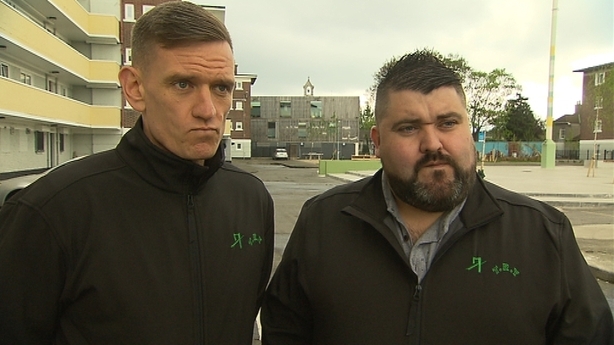Dublin City Council has said it will cease to be the sole funder of a grassroots project which weans young people off drugs in the capital's South Inner City.
The local authority says other state agencies are responsible for supporting drug-related services, but that if the project, called "TRY", can source part of next year's budget elsewhere, the council may be willing to provide the rest of what's required.
The Targeted Response to Youth (TRY) project was piloted approximately a year ago in St Teresa's Gardens off Dublin's South Circular Road.
For three months, it employed two youth workers for eight hours a week each to engage with young poly-drug users in the economically and socially deprived area around the Gardens.
The area has been undergoing a City Council-led regeneration process for the past five years.
Late last year the City Council provided 50,000 euro to employ the youth workers for sixteen hours a week each, but that money runs out at the beginning of next August.
This morning the youth workers concerned, Karl Ducque and Gary Lawlor, told a conference on the drugs menace in seven of Dublin's most deprived areas that their outreach has helped to wean at least ten of the eighteen people they've been working with off drugs.

They told the packed meeting at Saint Andrew's Community Centre in nearby Rialto that their success to date had been achieved by building on local community and family relationships and that young people were often open to reviewing their drug-taking and drug-dealing habits when they became parents for the first time.
But a spokesman for TRY's sponsors, the Donore Community Drug and Alcohol Team (DCDAT), said that, despite continuous negotiations with Dublin City Council on the project's future funding, no solution had been found to date.
He said DCDAT feared that the initiative would close in August.
A spokesperson for Dublin City Council told RTÉ News it will cease to be the sole funder of what it called the "very good (TRY) project" when current budget runs out.
She said the council had provided support on a one-off basis to help the project to lever necessary monies from other sources.
She added that the provision of support for drug-related services is the responsibility of other state agencies and would not normally be part of the City Council's core services.
"However, if the project could source at least part of the budget from elsewhere we may be willing to support it for another period," the spokesperson added.
In response, a spokesperson for DCDAT called on statutory agencies with responsibility for drug initiatives and youth welfare to come forward with offers of funding.
"Otherwise, as things stand, the project will have to cease operations at the beginning of August," he warned.
The Rialto conference was organized by the Citywide Drugs Crisis Campaign to present the results of research in seven unnamed deprived areas of the capital which shows that some young people consider drug selling to be an alternative to precarious work and see it as a means of accessing consumer goods.
Dr Matt Bowden of the Technical University of Dublin (TUD) interviewed community workers engaged with young people using and dealing in drugs and with others who are at risk of doing so, that they told him that many youths involved in the trade are open to disengaging from it.
Anna Quigley of Citywide said that successive governments had reduced funding for Drugs Task Forces by 37% during the recession and that no substantial restoration had taken place during the economic upswing.
She said the cuts weakened the links between statutory and community groups which had provided valuable solutions for many young people who had been drawn into the "drugs economy" in the republic.







